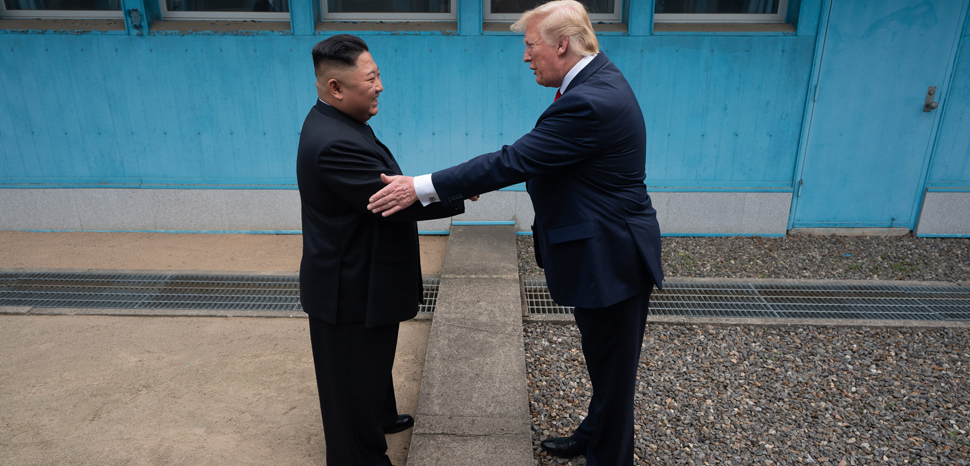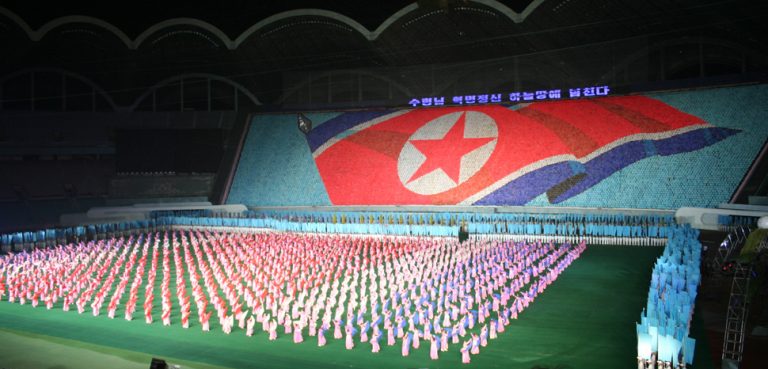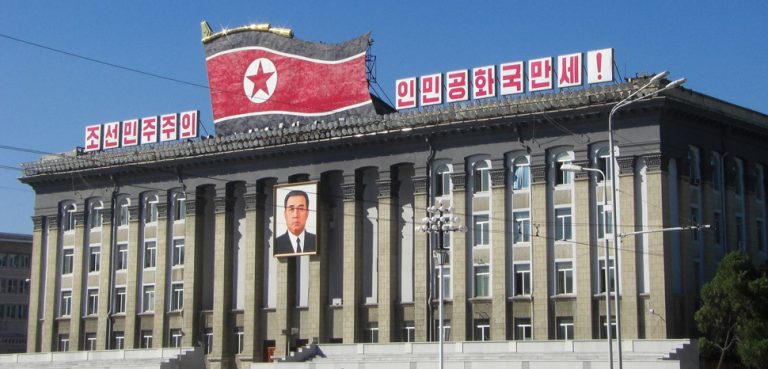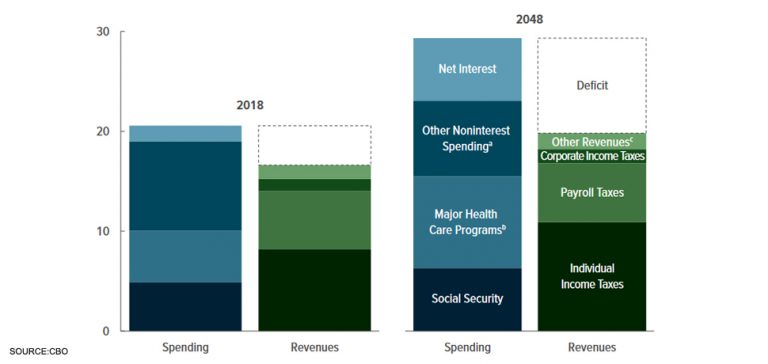How should people respond when they see pictures of North Korea’s leader Kim Jong-Un riding a white horse, or giving a piggyback to an elderly soldier?
Such photographs, distributed by North Korea’s propaganda ministry in 2017 and 2019, were used by the world’s media in a variety of contexts. Yet their deeper meaning was lost on those who don’t know the situation well, according to the BBC’s Korea Editor, Su Min Hwang.
“It’s crucial to put the pictures in context and to offer as much insight as we can on what they mean for the North Koreans,” Ms Hwang told a conference at Oxford University.
For example, both the white horse picture and the piggyback image were analyzed by BBC online, in stories which were widely read and shared.
Contrasting tones
Ms Hwang said: “The international media’s reports about North Korea carry different tones. Sometimes, there’s a comic tone about this weird country. At other times, there’s a very dark tone, with a soundtrack of solemn music. But I believe we have a responsibility to present a 360-degree picture.”
She explained that one of the challenges for the BBC – which does not assign its own reporters in North Korea – is verifying news which appears on international websites. “We see a lot of studies and analysis but we always need to ask what the sources are,” she said.
Another panelist, Aidan Foster-Carter, Senior Honorary Fellow in Sociology and the Koreas at Leeds University in the UK, said North Korea watchers often end up looking repeatedly at the same set of data and “pass it around like a slice of cold, stale pizza.”
He noted that the North Koreans often “play” the media. “They know we are watching and they send out false information,” said Dr Foster-Carter.
Defectors’ perspectives
The conference discussed the issues which arise from doing interviews with North Korean defectors.
“Defectors tell us that they will climb high mountains or walk many miles into the remote countryside to try to gain access to foreign television, radio or internet sources. Yet they also say that if you are caught watching a foreign film or listening to foreign music, the punishment can more severe than the punishment for murder,” said Ms Hwang from the BBC.
However, she urged caution in accepting defectors’ comments at face value. “Some people are paid to speak to the media, so there’s a risk of exaggeration. We are aware of the danger of being fed misinformation through defectors,” she said.
The quest for accuracy
Ms Hwang said the BBC takes great care over its sources of information and informs its audience when there is ambiguity. “We value accuracy more than speed at the BBC. We’d rather wait until things become clear. For example, when Kim’s train went to China, there were a lot of rumors flying around. But we waited until we had official verification that it was actually him before we reported the trip,” she said.
The media struggle to obtain accurate information about weapons tests and the development of nuclear facilities. Reporters often turn to experts to analyze developments but the conference heard that this can create further challenges.
It is similarly difficult for the press to accurately assess the North Korean economy. The central bank of South Korea offers estimates which are widely read, although its data is partly based on speculation.
It is evident that North Korea’s economy is harmed by multilateral sanctions, which are strongly supported by America and its allies. In recent years, those sanctions have become tighter, although Isabel Hilton, CEO and editor of China Dialogue, told the conference that: “China is busy busting the sanctions in order to keep the system going, in the hope that this will stave off any difficult or embarrassing collapse of the regime.”
Several people at the meeting noted that Kim Jong-Un has made the economic revival of North Korea a priority, although it is hard to assess the situation because of a lack of reliable economic data.
Edward Howell, lecturer in politics at New College, Oxford said: “For the North Koreans, pretty pictures of Kim cutting the ribbons at factories or meeting with workers are no longer enough. They are seeking evidence of economic development.”
“Many people in the North are asking how the country can justify the nuclear weapons program. I have spoken to defectors who have told me that as soon as they found out how much it cost, they wondered why the money was not being spent on them, or on the country’s more impoverished regions,” said Dr Howell.
Another participant, who has close links to the South Korean government, said that the impact of the sanctions is diluted by the support North Korea receives from both China and Russia.
He noted that negotiations aimed at dismantling North Korea’s nuclear and missile programs are currently stalled and said this creates frustration for South Korea.
“We need to rebuild trust. In a situation where one partner is much stronger than the other, it is up to the stronger partner to take the first steps. So in our view, the responsibility lies with the United States, although it seems very difficult for President Trump to take those measures,” said the South Korean government spokesperson.
He continued: “Kim offers many promises to his people of a better life and that was the strong message he sent before his last meeting with President Trump in Hanoi. Yet he came back from that meeting with nothing. In my personal opinion, he has lost face.”
Denuclearization
On the issue of denuclearization, the director of the Oxford China Centre Professor Rana Mitter said: “China’s red lines include no regime change and no re-unification of the two Koreas which leaves a large US troop presence on the border with China.”
Professor Mitter said that “unfortunately” he does not see a path toward complete denuclearization because it would be extremely difficult “to prize all the weapons out of the hands” of the North. He said one solution could be a deal which removes the intercontinental weapons but allows the North to retain some short-range missiles.
The panel concurred, though, that this would present a serious problem for both South Korea and Japan, which would resist a formal deal in which they remain under threat of a nuclear attack by a neighboring nation.
The conference at the Oxford China Centre was moderated by Bill Emmott, chair of the International Institute for Strategic Studies and organized by Asian Agenda.




